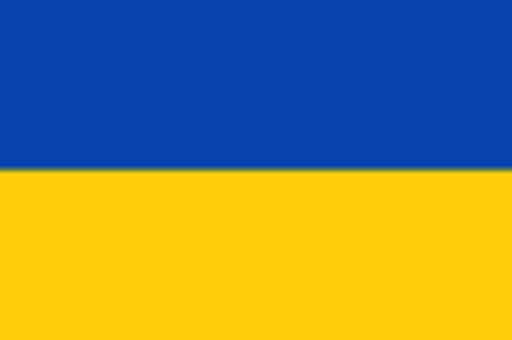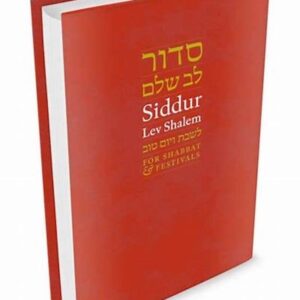I picked a hell of a time to try to write about a Russian author. As I type this, the full-scale Russian invasion of Ukraine has been going on for a few days. I was going to write about a man named Vladimir Soloukhin, in particular about his fascinating book Searching for Icons in Russia. And I will say a few words about Soloukhin and his book. But I don’t have the heart to write what I had been planning to write.
I sometimes feel as if the twentieth century is one of those awful nightmares that you desperately struggle to wake from, and you think you have for a minute, only to realize you’re still dreaming, and then again you think you’ve awoken but you haven’t really, and so on until finally, after six or eight or ten times thinking you’ve escaped the horror, you finally really do bolt awake, soaked in sweat, groping blindly for the light switch or your partner in bed.
I’ve been waiting for the twentieth century to end since I was seven years old, when I watched on TV as the Berlin Wall came down. Less than two years later I watched the tanks in Red Square in the August coup of 1991. I watched the Gulf War on TV, and I remember the Yugoslav War and already thinking then, Surely this doesn’t happen in Europe anymore?Then came September 11, 2001. That had to be the end of the twentieth century. The American response proved me wrong… Brexit… January 6th 2021…
Understand, I’m no progressive. My attitude, especially these days, is closer to that of Kohelet. There is nothing new under the sun, he says, but then again for everything there is a season. Well, I happen to think a century ought to end some time around when it chronologically ends. But it’s not happening. We keep getting dragged back. Liberal democracy has turned out to be not quite the same thing as the eschaton.
I should explain that I have some sense of a personal connection to what is now happening in eastern Europe. This is very attenuated: I’m not claiming some sort of radical empathy. Nevertheless, my Jewish forebears came to America from around Lviv, Ivano-Frankivsk, and Kyiv. Back then some of the places they came from were part of Tsarist Russia and some were in the Austro-Hungarian Empire. Back before that the region was part of the Polish-Lithuanian Commonwealth, and before that those Jews didn’t live there, they lived in western Europe, but they were driven east as Christian civilization consolidated itself. Vanity of vanities.
I’ve long been fascinated by Russia and the east—meaning the far side of the Berlin Wall; the far side of the Great Schism in the Church; the side of the Mediterranean where all our religion and traditions of higher thought come from. The first poem I ever wrote was titled “The Bear” and it was about Russia. I was fourteen and had just read Robert K. Massie’s monumental Peter the Great. I was also reading Crime and Punishment. I don’t care as much for Dostoevsky anymore, I’m more of a Tolstoy and Turgenev guy these days, and I still love Gogol (Ukrainian, by the way). But Russian novels were some of my first, and as they say, you don’t forget your first.
In time I became more interested in Eastern Christian spirituality and philosophy than in the literature of eastern European cultures. The winter of 2013-2014 was severe in Chicago, where I was then living, and I spent the coldest, snowiest part of the season reading The Pillar and Ground of the Truth, masterpiece of Pavel Florensky, the great Russian thinker and priest martyred by Stalin’s regime. Somehow it felt right to be reading that very Russian book in what felt like a Russian season. I also read his book Iconostasis, and so began my fascination with holy icons, that hallmark of Eastern Christianity. I was reading other Russians then, too, like Nikolai Berdyaev, S. L. Frank, and Sergius Bulgakov. I would go to the neighborhood called Ukrainian Village and linger in the sumptuous Holy Trinity Cathedral (of the Orthodox Church in America), built in a historical Russian style. That winter was probably the time in my life I most seriously contemplated converting to Orthodox Christianity, due to the confluence of reading, exploration of Orthodox churches throughout Chicago (there are many others that are very beautiful), and for once a true, old-fashioned winter.
What can I say; I have a very strong sense of place. Maybe a little too strong. Maybe a little hypertrophied and pathological. I have been fascinated by many places the world over, and the cultures that have flourished in them, and with most of these places I have no personal connection. But sometimes a connection of that sort leads me. My love of Wendell Berry’s work is another example: he lives in Kentucky not far from where I grew up in southwest Ohio. And Vladimir Soloukhin, about whom I was going to write today, might have been something like the Soviet Wendell Berry. Like the Kentuckian, he would never have countenanced a war like the one that his native country has brought upon Ukraine. To be deep in your place is not to be an imperialist. Or so one likes to think.
Vladimir Soloukhin lived from 1924 to 1997, so he did see the collapse of the most recent instantiation of the Russian empire. His book Searching for Icons in Russia is the only one of his works available in English that I’ve so far read (I’m looking forward to two more volumes). Because there is a religious aspect to the conflict between Russia and Ukraine, and because the Russian Orthodox Church is so bound up with Putin’s government, I’m disinclined to write much about Searching for Icons in Russia at present. I know that’s not fair. But if I was going to write about a vanished culture in eastern Europe, I would be more inclined to write about, say, Der Nister, one of the last great Yiddish writers. He died in 1950 while imprisoned by Stalin.
Vanity of vanities. Vanished.
Searching for Icons in Russia is written in a deceptively casual style. It documents the author’s quest (his word, and a word I love) to collect, restore, and learn about holy icons. In officially and militantly atheist Soviet Russia, Soloukhin must present himself as an unbeliever (or at least as agnostic and uncommitted), a collector whose passion is no more than a quirk of curiosity. But a poignant subtext in the book belies that attitude and reveals Soloukhin’s seemingly idle rambles around his native province to be an elegy for a ruined nation whose traditions have been torn away from it. For just like the Jewish civilization of eastern Europe, the Orthodox civilization of Russia is a thing of the past. At least so it appeared to Soloukhin, who roamed his native province seeking its vestiges. Some other time I can say more about that sort of thing. Right now it’s too risky.
Place, heritage, roots. How good are these. And how careful of them we must be.
Jonathan Geltner lives in Ann Arbor MI with his wife and two sons. His translation of Paul Claudel’s Five Great Odes is available from Angelico Press and a novel, Absolute Music, is forthcoming from Slant. If you enjoy his posts at Close Reading, check out his new Substack, Romance and Apocalypse, for more frequent and in-depth essays on the places where literature and other arts meet religious ideas and experience.





